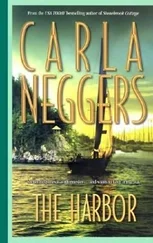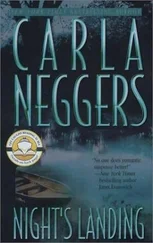“I suppose so,” he replied, not knowing what else to say. He had risen before dawn and walked out on the rocks at the Winston house on the North Shore, unable to get Tam out of his mind. He couldn’t think about her without the burning pain of regret in his stomach. Yet to attempt to explain his feelings to his mother would be futile. Not only would she not hear him out, even if she did, she’d never understand how, after all Tam had done to him, he still felt anguish over what he had done to her. Only after he had abandoned her had she turned to Jared Sloan. That Quentin had had little choice, that he had intended to go back for her, meant nothing. Only actions counted.
Her elbows on the table, Annette held her coffee mug in two hands and drank slowly, hoping the caffeine would revive her. She wished Quentin had the courage to meet her eye. What a hellish mess they were in. Thomas, Rebecca, Jared, Jean-Paul. Maybe she should have shot Jean-Paul while she’d had the chance-or let Kim have him. A dead man in her study wouldn’t have been the worst thing she’d ever had to explain.
“I’ve decided to leave for France this afternoon,” she said. “I hadn’t planned to leave until next weekend at the earliest, but I was up most of the night thinking about this dilemma we’re in. Frankly, I think the wisest course of action right now is for me to get out of the country. I usually don’t like to confront problems by running, but I can’t justify standing up to Jean-Paul when he might jeopardize the safety of others-you, Jared, even Rebecca. Whatever my personal opinion is of those two, I don’t want to be responsible in any way for anything Jean-Paul might do to them to twist my arm. It’s best I just leave. If Jean-Paul wants to deal with me, he’ll have to come to the Riviera.”
“Mother, are you sure? You could be leaving yourself open.”
She smiled at his boyish concern for his old mother’s safety; how sweet. What would he think of her if he knew how deliberate her actions were? “Quentin,” she said philosophically, “it’s my guess Jean-Paul Gerard won’t dare step foot in France to follow me. I’m hoping-call it a calculated risk, if you will-that he’ll just give up.” She inhaled, then sipped her coffee, debating whether she should bother to go on. Finally, she said, “There’s another side to this problem I haven’t told you.”
Quentin abandoned any pretense of eating breakfast. His mother’s seriousness-her very blue eyes riveted on him, her lined face strangely pale-further upset his stomach and made him wonder if he should have come to her. He could have explained his fears to Jane, told her everything about Tam, Saigon, the Frenchman. He could have tracked down Jared and talked to him, tried to clear the air between them. Why had he come to his mother? Not for sympathy and understanding certainly; they were in short supply with Annette Reed. For advice? For hope? For strength and courage?
No, he thought, he’d come to her simply because that’s what he’d always done.
“What’s that?” he asked in a neutral tone.
“Thirty years ago,” she said, “I brought it to the French police’s attention that Jean-Paul Gerard was their much-sought jewel thief Le Chat.”
Not wasting a word, she told Quentin about the Riviera in 1959, the jewel thief Le Chat, the popular race-car driver Jean-Paul Gerard, Gerard’s flight from the country.
“I thought I’d never hear from him again,” she explained, “but obviously I was wrong. He used you to get to me in 1974 with that blackmail scheme. Now he’s trying again.”
Quentin had listened quietly, horrified. “Mother, I had no idea. What you must be going through…to do the honorable thing and then suffer for it. And obviously I let you down. I gave him a way of getting to you-” Quentin paused and shook his head in sorrow. “I should have been more careful.”
“All water over the dam now,” Annette said briskly. “You committed a relatively minor transgression, Quentin. You were twenty-two years old, and you allowed yourself to be duped. If you’d done something I considered really wrong-really inexcusable-I would have let you take your lumps.”
“But I was just stupid.”
She made no response.
“Why did Gerard wait all these years to come after you again? There must have been something in that article in The Score-”
“No, I doubt there was anything specific. The Score simply stirred up his old feelings of resentment, and he thought he might as well have another go at me.” She pushed aside her virtually untouched plate of muffins. “The point is, Quentin, that he’s after me, not you or Jared or Rebecca or anyone else. But if I were Jean-Paul Gerard, I’d think very seriously before I stepped foot into a country I’d left thirty years ago as a fugitive from justice.”
Quentin nodded, admiring his mother’s courage. He would have complimented her again and again, except she’d had enough of him.
“Go away for the weekend,” she told him. “Let Gerard realize he’s failed again and go sulk. Everything will be fine.” And thinking of Thomas, Annette smiled and added, “I promise.”
Jean-Paul relished the taste of the hot, bitter coffee from a twenty-four-hour store on Cambridge Street as he walked back up Joy to the intersection of Mt. Vernon. He’d been debating for hours whether or not to go ahead and meet Annette in Marblehead. What was she trying to accomplish with that nonsense about Thomas Blackburn being Le Chat? With Annette, he never knew. He had considered taking the next plane west and returning to the life he had in Honolulu. It wasn’t much: odd jobs, a seedy room, too many trips to bars. He’d tried to make friends, but what was the point? He had a knack for getting good people killed.
He remembered Benjamin Reed’s screams of agony as he’d slowly died.
Remembered Stephen Blackburn’s courageous attempt to defend himself and his party.
And Quang Tai’s absolute refusal to show fear or pain to the countrymen whose tactics he so despised.
I should have died that day, not them.
Jean-Paul had fought as long as he could before being wounded and relieved of his weapon. He had assumed the guerrillas would execute him, but instead they’d marched him off as their latest trophy, a French mercenary prisoner. They’d taken his gun and used it to kill others.
Five years of hell he’d endured.
Every day, every hour of his captivity, he had thought of Annette and what she’d done.
Stephen, Benjamin, Tai. All dead because she had lacked the fortitude to kill Jean-Paul and Thomas herself.
All dead because Jean-Paul had been stupid enough to go up against her again. Would Gisela have wanted him to reduce himself to blackmail-to endangering innocent people-to get to Annette Winston Reed?
He had survived his ordeal in the subhuman conditions of the jungle POW camp and emerged into a South Vietnam in the midst of all-out war. Sick and dispirited, Jean-Paul gave up on any idea of exposing Annette or getting back Gisela’s Jupiter Stones-until Quentin Reed arrived in Saigon in the fall of 1973.
Quentin wasn’t a bad sort, just naive and frightened, but he’d gotten himself into a jam. Jean-Paul had waited to see if he’d extricate himself. He hadn’t. At first he’d okayed the drug smugglers’ use of Winston & Reed planes, not knowing exactly what they were up to. The next time, he’d done it out of fear of reprisal. So Jean-Paul had stepped in and threatened to tell the police what he’d done, using Quentin’s troubles as an opportunity to get to Annette. He doubted he’d have gone so far as to turn Quentin in to the authorities, but he was somewhat surprised when Annette’s bright, sensitive son had agreed to her demand he remain in Boston and give up any hope of a life with Tam. Why not just tell her to go to hell and return to Saigon and take his chances?
Читать дальше
Конец ознакомительного отрывка
Купить книгу












